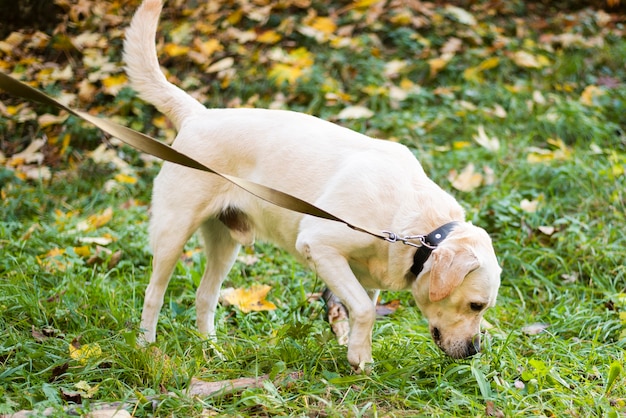Managing Canine Allergies in Iowa’s Humid August

Managing Canine Allergies in Iowa’s Humid August
As August arrives in Iowa, many dog owners begin to notice unwelcome changes in their pets’ comfort and well-being. The combination of high humidity and lingering summer heat can trigger or worsen canine allergies, leading to itching, irritated skin, and even respiratory concerns. If your dog suddenly starts scratching more than usual, develops red or flaky patches, or seems less comfortable outdoors, you are not alone. At Companion Animal Clinic, located at 143 Dunn Street, Gilbert, IA 50105, our veterinary team regularly helps local families navigate dog skin problems in summer and the unique challenges that come with Iowa’s weather.
This blog will guide you through recognizing the signs of canine allergies in humid weather, understanding what causes these seasonal reactions, exploring both home care and professional treatment options, and knowing when to seek veterinary support. We will also touch on how our clinic’s dermatology services and allergy testing can help you identify and manage your dog’s specific triggers. Whether you are searching for “vet near me” or looking for advice on dog skin problems in summer in Gilbert and surrounding communities, you will find practical, compassionate guidance here.
Recognizing the Signs: Is Your Dog Suffering from Allergies This August?
As the humidity increases and pollen counts rise, dogs in Iowa can develop or experience worsening allergy symptoms, especially in late summer. Knowing what to watch for is the first step toward helping your pet feel more comfortable. Key symptoms of canine allergies in humid weather include persistent scratching, licking, or chewing at the paws, belly, or ears. You might notice red, inflamed skin, recurring ear infections, watery eyes, or sneezing. Other signs are hair loss in patches, unpleasant skin odor, or hot spots—moist, irritated skin lesions that can develop rapidly in the heat.
It is also common for dogs with allergies to become restless or irritable, particularly if itching disrupts their sleep. In some cases, you may notice your pet rubbing their face against furniture or carpeting in an attempt to relieve discomfort. These symptoms often appear or worsen as the weather becomes more humid, especially after your dog spends time outdoors. If you see these signs of dog skin problems in summer or suspect your pet is struggling with allergies, it is important to pay close attention to any changes and consider seeking advice from a veterinarian near Gilbert.
Why Are Allergies Worse in Iowa’s Humid Summer?
Understanding the causes behind your dog’s discomfort can help you make informed decisions about care and prevention. Allergies in dogs are often triggered by a combination of genetic factors and environmental exposures. In Iowa, late summer brings a spike in environmental allergens such as pollen from grasses, weeds, and trees. The high humidity creates an ideal environment for mold spores, dust mites, and even flea populations—all of which can worsen allergic reactions in sensitive pets.
Dogs with a history of allergies or sensitive skin are especially prone to problems during humid months. Exposure to freshly cut grass, frequent swims in ponds or creeks, and longer stretches outdoors can all increase the risk of flare-ups. Additionally, humidity can make your dog’s skin more prone to irritation by trapping heat and moisture, leading to secondary infections or hot spots if not managed promptly.
Certain breeds, such as terriers, retrievers, and bulldogs, have a higher risk of developing skin allergies, but any dog can be affected. If you live in Gilbert or surrounding communities, the regional climate and local flora can play a significant role in your pet’s health.
Treatment and Management: How We Help Dogs With Allergies in Gilbert
Managing canine allergies in humid weather requires a tailored approach that addresses both symptoms and underlying causes. At Companion Animal Clinic, our veterinarians offer comprehensive diagnostic and treatment services designed to relieve discomfort and prevent complications. When you schedule an appointment, our veterinary team will begin with a thorough examination, often followed by specific diagnostic tests such as allergy testing or skin cytology to identify triggers and rule out infections.
Treatment options depend on the severity and cause of your dog’s symptoms. For mild cases, topical therapies such as medicated shampoos, sprays, or wipes can provide relief from itching and inflammation. If secondary skin infections are present, your veterinarian may prescribe antibiotics or antifungal medications. In more persistent cases, prescription antihistamines, fatty acid supplements, or even immunotherapy (allergy shots) may be recommended.
For dogs suffering from recurrent or severe skin issues, our dermatology services in Gilbert provide advanced diagnostic and treatment options. Our veterinary professionals may suggest dietary changes or specialty diets if food allergies are suspected, and we can guide you through options for long-term allergy management. Throughout the process, we keep you informed and involved, helping you understand each step and what to expect as your pet recovers.
Preventing Dog Skin Problems in Summer: Home Care and Practical Tips
While professional veterinary care is crucial for managing canine allergies in humid weather, there are many steps you can take at home to minimize your dog’s discomfort. Bathing your dog regularly with a gentle, hypoallergenic shampoo can help remove allergens from the coat and skin. After outdoor walks or playtime, wiping your dog’s paws and belly with a damp cloth can reduce pollen, mold, and dust exposure. Keeping your home environment clean—vacuuming carpets, washing bedding frequently, and using air purifiers—can also limit airborne allergens.
It is important to maintain regular flea prevention, as fleas are more prevalent in humid weather and their bites can trigger severe allergic reactions. Avoid walking your dog in tall grass or areas with heavy weed growth during peak pollen periods, and consider limiting time outdoors on days with high humidity or after heavy rains when mold counts are elevated.
If your veterinarian recommends a prescription diet or supplements, follow their advice closely, as proper nutrition can improve skin health and resilience. Monitoring your pet’s skin for early signs of irritation and addressing issues promptly can help prevent complications like hot spots or infections.
When to Seek Veterinary Care for Canine Allergies in Gilbert
Some cases of dog skin problems in summer can be managed with simple home care, but it is important to know when professional help is needed. If your dog’s symptoms persist for more than a few days, worsen rapidly, or are accompanied by open sores, hair loss, or behavioral changes, it is time to schedule a visit with your veterinary team. Warning signs that require urgent attention include severe swelling, difficulty breathing, or sudden, widespread skin lesions.
Our veterinarians at Companion Animal Clinic are experienced in diagnosing and treating canine allergies in humid weather, and we encourage you to reach out if you are unsure whether your pet’s symptoms require a professional evaluation. Early intervention can prevent complications and help your dog return to their happy, healthy self more quickly. If you are searching for the best veterinarian near me or need specialized dermatology services in Gilbert, our clinic is ready to help.
Supporting Your Dog Through Iowa’s Allergy Season: Next Steps
Helping your dog feel comfortable during Iowa’s humid August is possible with the right blend of home care and professional veterinary support. By recognizing the signs of canine allergies in humid weather, taking preventive steps, and knowing when to seek treatment, you can make a significant difference in your pet’s quality of life. Our team of veterinarians at Companion Animal Clinic remains committed to providing compassionate, comprehensive allergy care for dogs in Gilbert and surrounding communities.
If your pet is struggling with dog skin problems in summer or you have questions about allergy management, we encourage you to schedule an appointment by calling (515) 233-6689 or visiting our convenient Gilbert location. Our veterinary professionals can help you explore options such as allergy testing and advanced dermatology services to identify your dog’s unique triggers and create an individualized care plan. For those looking for a “vet near me” who truly understands local seasonal challenges, Companion Animal Clinic is proud to be your trusted partner in pet health. Remember, with attentive care and ongoing support, your dog can thrive even during the humid days of August.
This blog is intended for informational purposes only and does not replace professional veterinary advice. Please consult with your veterinarian for personalized recommendations and care for your pet’s specific needs.
















